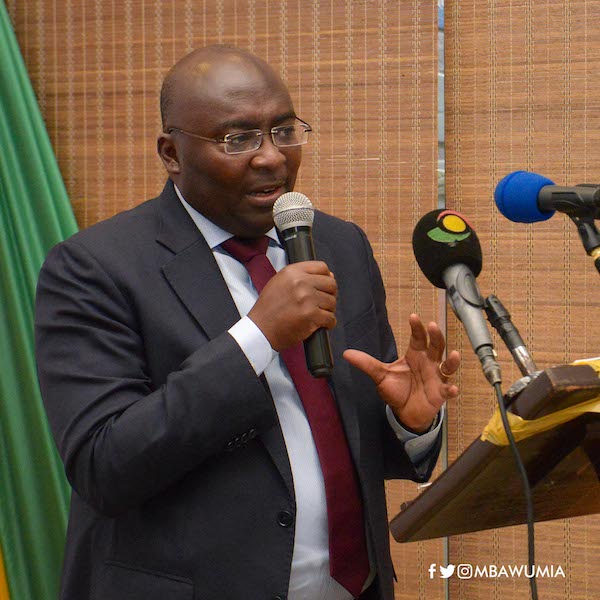Vice-President Dr Mahamudu Bawumia has defended the Akufo-Addo government’s management of the economy in the wake of the depreciation of the Cedi against the United States dollar.
According to him, the depreciation of the Cedi against the dollar has been only 7percent an indication of a relatively stronger fundamentals of the economy.
The Cedi in May this year, per the governor of the Bank of Ghana (BOG) during an encounter with the media to present the highlights of the 82nd regular Monetary Policy Committee (MPC) Meeting, gained 0.02percet against the dollar then, compared to a depreciation of 0.97 per cent in the same period in 2017.
Since then, however, the cedi has recorded massive losses against the dollar, the latest being last week where it hit GH¢4.97 to the dollar. It followed a July fall where it traded at GH¢4.8250 to the dollar depreciating cumulatively, by 5.3 per cent in the first six months, compared to 3.3 per cent in the first half of 2017 despite significant increments of weekly dollar sales to local banks in the country.
Critics have blamed government’s policies for the weakening of the cedi against the U.S. Dollar and other major currencies—a stance Dr Bawumia rejected.
Speaking at the launch of the School Entrepreneurship Initiative Programme in Tamale, he said the Akufo-Addo government is a better manager of the economy and the depreciation of the cedi than the erstwhile Mahama administration.
According to him, the percentage depreciation of the cedi has only been seven per cent and that “over the last few months the US dollar internationally has strengthened against all the major currencies in the world” because the US federal reserve has increased its interest rate.
“So, you have been seeing over the last few months that many currencies in the world have been depreciating against the US dollar,” said Dr Bawumia. “For example, the Argentina peso has depreciated by 50.2percent this year against US dollar, the Turkish Lira has depreciated by 42percent against the US dollar, and the South African rand has depreciated by 19.2percent against the US dollar. In India, another strong market economy rupee has depreciated by 11 per cent against the US dollar, in the UK, the British pound has depreciated by 4.29percent against the US dollar and in this context, and so far this year the Ghana cedi has depreciated by just 7percent against the US dollar.”
That, according to him, meant that the exchange rate of the cedi to the dollar has remained “relatively stable when compared to the movements in other currencies against the US dollar. The reason for this is because of the relatively stronger fundamentals that we have in our economy.”
Source: Ghana/Starrfmonline.com




